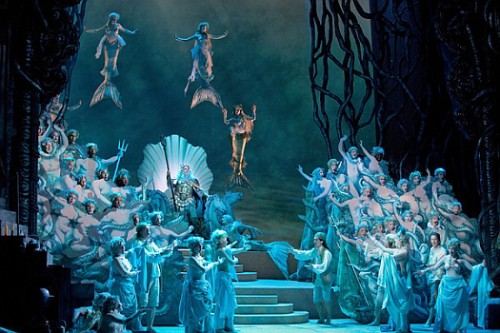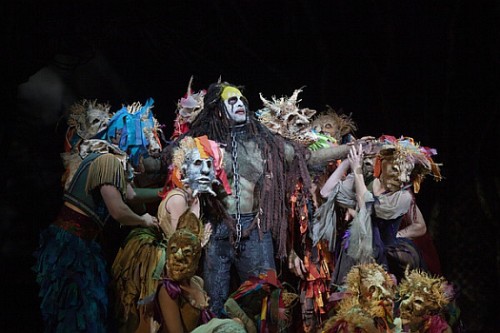 United States The Enchanted Island , Metropolitan Opera Orchestra and Chorus, William Christie (Conductor), New York, (31.12.2011 – 30.1.2012) (SSM)
United States The Enchanted Island , Metropolitan Opera Orchestra and Chorus, William Christie (Conductor), New York, (31.12.2011 – 30.1.2012) (SSM)
Performances from December 31, 2011 – January 30, 2012
Live in HD Performance: January 21, 2012
Production:
Devised and Written by Jeremy Sams
Production: Phelim McDermott
Set Designer: Julian Crouch
Costume Designer: Kevin Pollard
Lighting Designer: Brian MacDevitt
Choreographer: Graciela Daniele
Animation & Projection Design: 59 Productions
Cast:
Danielle de Niese (Soprano),
David Daniels (Countertenor)
Joyce DiDonato (Mezzo-Soprano)
Placido Domingo (Tenor)
Luca Pisoroni (Bass-Baritone)
Layla Claire (Soprano)
Elizabeth DeShong (Mezzo-Soprano)
Lisette Oropesa (Soprano)
Paul Appleby (Tenor)
Anthony Roth Constanzo (Countertenor)
Elilot Madore (Baritone)

The comments below are based on a viewing of the final dress rehearsal.
What makes this production so special and worthy of attending live or in HD is the participating of some of the best performers of Baroque music alive today. William Christie’s involvement alone is an imprimatur of authenticity and high quality. The cast is a Baroque opera lover’s dream. All the soloists are familiar with Baroque performance style and sing the difficult music with ease. Only Placido Domingo’s voice lacks early music styling, but this is made up for by his acting: his appearance as the god Neptune adds a sense of camp in a scene reminiscent of Busby Berkeley spectacles. The staging is wildly creative in its use of both traditional operatic elements and modern computerized visual effects.

Perhaps in the future the Met will look back more often to the past and revive other forgotten masterpieces such as Leclair’s sole opera, Scylla and Glaucus or Vivaldi’s Bajazet. Lully, whose music is not included in this pastiche, is eminently eligible for revival following the successful performance this year of Atys at the Brooklyn Academy of Music. Several other operas by Lully have been produced elsewhere, but have not made their appearance in New York: Thésée and Psyché at the Boston Early Music Festival; Bellérophon, Roland and Proserpine among others in French productions by Christophe Rousset and Hervé Niquet.
This production should not be missed in either its live or HD live performance.